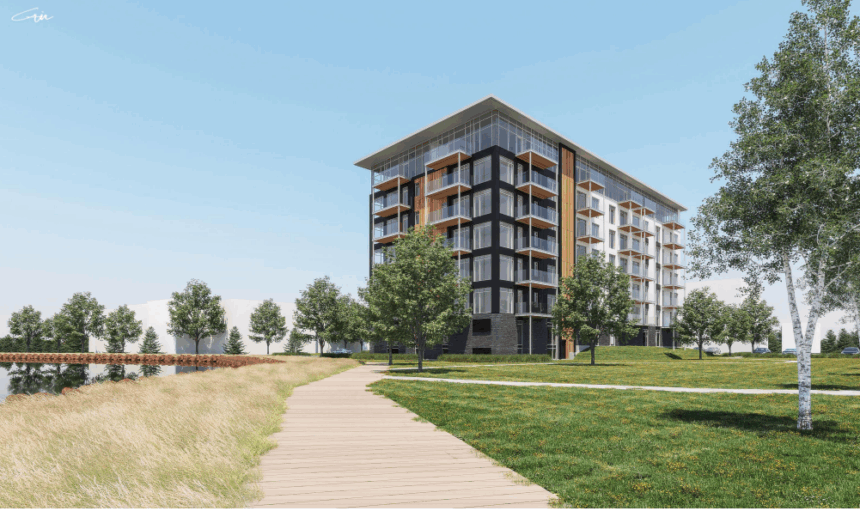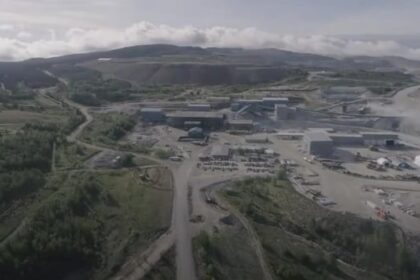Tim Banks, developer of an upcoming apartment building at 15 Haviland St., says his company conducted environmental testing of the land before buying it, and the project will retain a boardwalk currently there. Photo by ScreengrabArticle contentTim Banks, developer of a new luxury apartment building on the Charlottetown waterfront, says concerns about potential environmental hazards raised by nearby residents have no grounding in fact.THIS CONTENT IS RESERVED FOR SUBSCRIBERS ONLY.Subscribe now to access this story and more:Unlimited access to the website and appExclusive access to premium content, newsletters and podcastsFull access to the e-Edition app, an electronic replica of the print edition that you can share, download and comment onEnjoy insights and behind-the-scenes analysis from our award-winning journalistsSupport local journalists and the next generation of journalistsSUBSCRIBE TO UNLOCK MORE ARTICLES.Subscribe or sign in to your account to continue your reading experience.Unlimited access to the website and appExclusive access to premium content, newsletters and podcastsFull access to the e-Edition app, an electronic replica of the print edition that you can share, download and comment onEnjoy insights and behind-the-scenes analysis from our award-winning journalistsSupport local journalists and the next generation of journalistsRegister to unlock more articles.Create an account or sign in to continue your reading experience.Access additional stories every monthShare your thoughts and join the conversation in our commenting communityGet email updates from your favourite authorsSign In or Create an AccountorArticle contentRecently, The Guardian published a story reporting concerns from people living at 13 Haviland St. who said the project is being built on infilled land and they wondered what materials might be under the topsoil. But Banks says his team conducted an environmental test before even buying the land.Article contentArticle contentArticle content“There’s no issues, no contaminants, no anything that was unusual on the site,” Banks said in an Aug. 5 Guardian interview. “And then our structural engineering people went in and did tests with respect to the structural ability of the site, and again there was no issues there,” he said.Article contentThe building is also set back 15 metres from the high water mark, he said.Article contentPrivate land useArticle contentAnother issue the neighbours mentioned was loss of greenspace. Banks pointed out there is other greenspace in the area, and the term usually refers to public land such as parks, while the Haviland property is privately owned.Article contentAnd while boardwalk along the water by the site is not public property, Banks says it will also be rebuilt and his company plans to offer it to the city as a public right of way.Article content“In this case the land has never been used for public use other than people using it as a boardwalk, but there’s never been anything on the land that would make it some public space,” Banks said.Article contentArticle contentThe parking spaces the neighbours are currently using also doesn’t actually belong to them, since it is part of The Banks property. It is up to the landlord next door to provide parking, he said.Article contentBuilding permitArticle contentBanks wasn’t the only person who took issue with the original Guardian story.Article contentIn an email, neighbour Louise Aalders pointed out a missed detail, which said Banks had received final permits to begin work within weeks.Article contentIn an email forwarded by Aalders, Charlottetown’s manager of development, David Gundrum, says APM only has a development permit for site mobilization and can install a construction fence and set up a construction trailer on site.Article content“To confirm, APM is not authorized to commence construction on the project until the city issues a building permit for footing and foundation work and/or anything beyond that initial stage (i.e. full permit for the entire build),” Gundrum said.Article contentThe company still needs permission for footing and foundation and a Phase 2 permit for the rest of the build, he said.Article contentBanks confirmed this, but said the company will be starting work, following a past IRAC decision that said building work can begin after getting a development permit and development agreement.Article contentArticle contentLogan MacLean is a municipal reporter for The Guardian in Prince Edward Island. He can be reached at lmacLean@postmedia.com and followed on X @loganmaclean94.Article content
Haviland Street developer, neighbours clarify details about upcoming luxury Charlottetown apartment building











